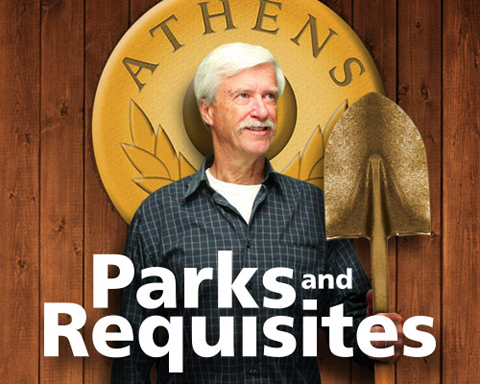The College of Arts & Sciences offers many summer courses that fill Ohio University Tier II Applied Sciences & Mathematics (2AS) general education requirements. Many of the courses are online.
Biological Sciences
BIOS 2200 Conservation and Biodiversity ONLINE
Tier II Applied Science & Mathematics (2AS) | Sustainability Studies theme course
Class #1307 | First Summer Session
Description: For non-majors, this course introduces the student to the modern field of conservation biology and the role of genetics, ecology, life history, and biogeography in the preservation and maintenance of biodiversity. Case studies of endangered animal and plant species are highlighted.
BIOS 2210/2215 Microbes and Humans & Lab ONLINE (With Online Component or Online and In-Class Hybrid Lab Course)
Tier II Applied Science & Mathematics (2AS)
Class #1335/5487 | Full Summer Session
Description: For non-majors, this course is a good introduction to microbiology for allied health fields. Introduction to the history and life of microorganisms with an emphasis on bacteria and viruses. Discussion covers the interaction between humans and microbes including vaccines, antibiotics, biotechnology, immunity, disease transmission, and food spoilage. This overview of infectious diseases affecting human organ systems includes application of concepts through reading on current topics.
Chemistry & Biochemistry
CHEM 1010 Chemistry Applied to Today’s World
Tier II Applied Science & Mathematics (2AS)
Class #4743 | Full Summer Session
Description: Designed for nonscience majors with little or no previous experience with chemistry, this course covers applications of basic principles of chemistry to real-world situations. Instruction will include multimedia and small-group activities.
Environmental & Plant Biology
PBIO 1030 Plants and People ONLINE
Tier II Applied Science & Mathematics
Class #2000 (section 100) | First Summer Session
Class #2001 (section 101) | Second Summer Session
Description: This course examines the interrelationships of plants and humans from both historical and modern points of view, origins of agriculture and civilization, tropical and temperate food plants, medicinal plants, drug plants, and the destruction of environment and its ultimate effect on food plants.
PBIO 2060 Sustainable Agriculture
Tier II Applied Science & Mathematics
Class #2005 and 2006 | First Summer Session
Description: This course is an investigation of global and local agriculture with an emphasis on small-scale, highly diversified agriculture and local food systems as a synthesis of human activities. Agriculture is considered to include the production from plants of food, fiber, fuel, building materials, and medicines. Students gain direct experience with agriculture by growing an organic garden, preparing compost and testing soils, harvesting crops, seed saving and visiting local farms.
Geography
GEOG 2680 Introduction to GIS and Mapping Sciences ONLINE
Tier II Applied Science & Mathematics
Class #2125 | Second Summer Session | 4 Credits | Sinha
Description: This introduction to core concepts of geographic information science includes data collection, data management, mapping, and spatial analysis. The overview covers application of these core concepts in the mapping sciences of GIS, remote sensing, and cartography, as well as basic principles of GIS software for exploring and practicing these fundamentals.
Geological Sciences
GEOL 2170 Water Resources and Sustainability ONLINE
Tier II Applied Science & Mathematics (2AS)
Class # 4719 | Second Summer Session
Description: Sustainability of water resources is complicated because groundwater and surface water are connected, and the use of water resources should be in a manner that can be maintained for an indefinite time without causing unacceptable environmental, economic, or social consequences. The course emphasizes the importance of water resources and its sustainable development in the 21st century. Students learn fundamental concepts and theories related to the occurrence, movement, storage, quality, and sustainability of water resources. They are exposed to real-world issues of water resources sustainability, e.g., water risks, contamination, remediation, health, economics and disputes;the water-energy nexus water security; and efforts to improve sustainability of water resources.
GEOL 2310 Water and Pollution ONLINE
Tier II Applied Science & Mathematics (2AS)
Class # 2156 | First Summer Session
Description: This course explores the interrelationship between geologic and hydrologic principles and technology as they relate to the use of water resources and the environmental problems associated with its pollution.
Mathematics
MATH 1350 Survey of Calculus
Tier II Applied Science & Mathematics (2AS)
Class #2400, 2364 | First & Full Summer Sessions
Description: This course presents a survey of basic concepts of calculus for students who want an introduction to calculus but do not need the depth of 2301 and 2301. Note: Students cannot earn credit for both MATH 1350 and 2301 (MATH 1350 always deducted).
MATH 2301 Calculus I
Tier II Applied Science & Mathematics (2AS)
Class #2301 | First Summer Session
Description: This is the first course in calculus and analytic geometry with applications in the sciences and engineering. It includes basic techniques of differentiation and integration with applications including rates of change, optimization problems, and curve sketching; includes exponential, logarithmic and trigonometric functions. No credit for both MATH 2301 and 1350 (always keep 2301).
MATH 2302 Calculus II
Tier II Applied Science & Mathematics (2AS)
Class #2388, 2398 | First & Full Summer Sessions
Description: This is the second course in calculus and analytic geometry with applications in the sciences and engineering. It includes techniques of integration, conic sections, polar coordinates, infinite series, vectors and vector operations.




















Comments